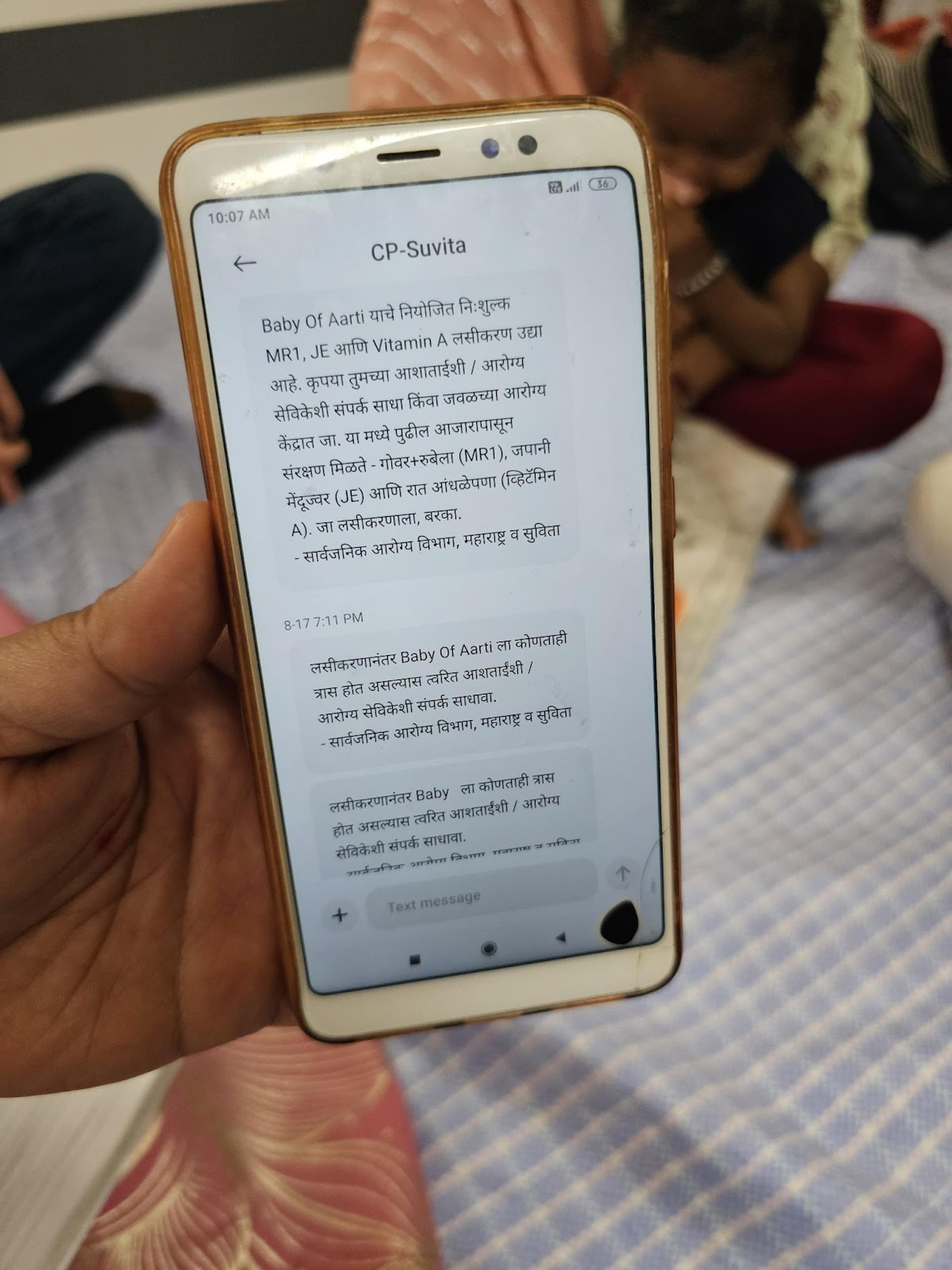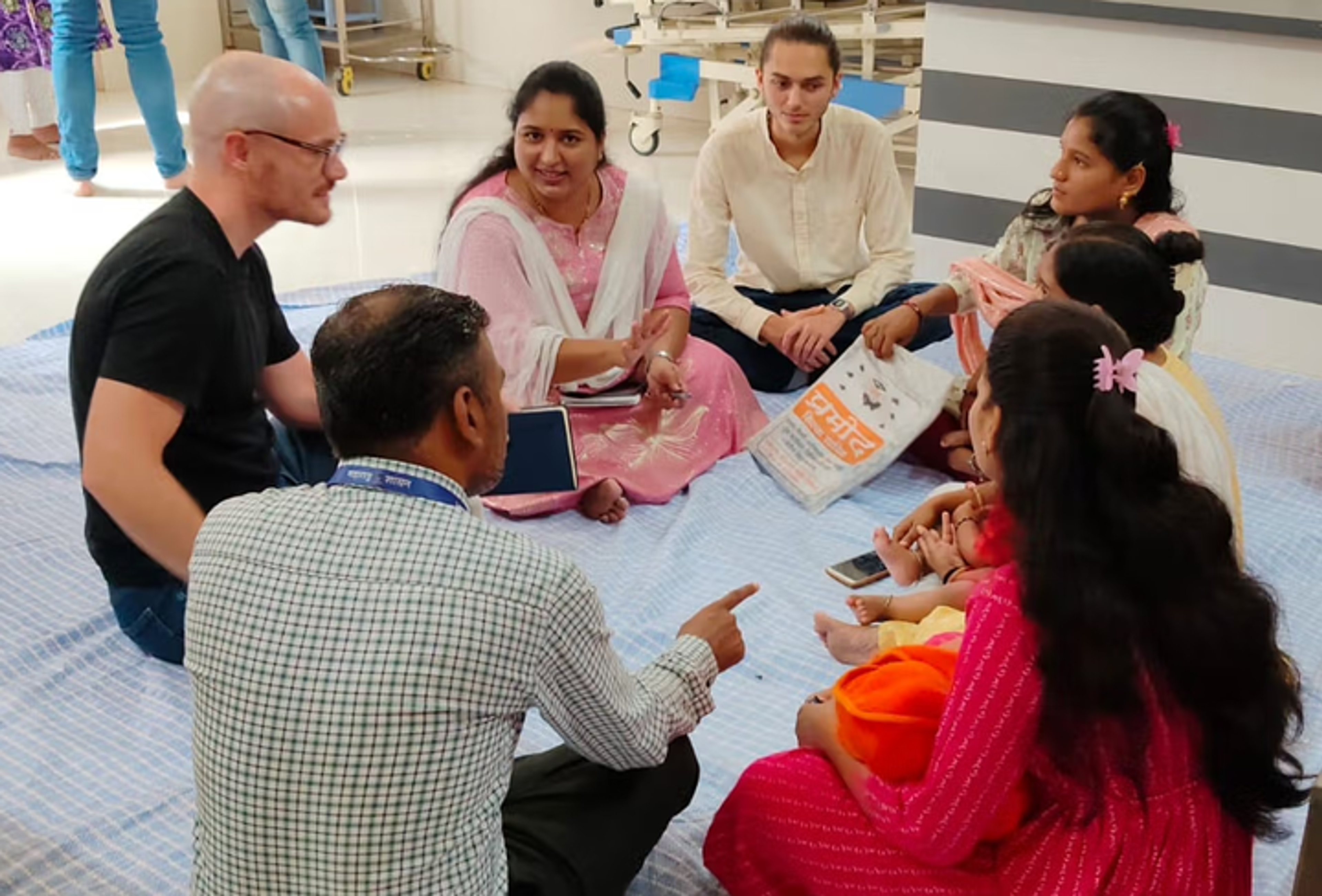A Visit to Suvita in India
Greetings from Pune, India! We (Lucas and James), recently had the privilege of spending a day with Suvita—one of the charities we list on our donation platform. During our visit, we met with nurses, community health workers, and caregivers along with their children, gaining firsthand insight into the inspiring work Suvita is doing to improve vaccination rates in India.
In 2023, there were over 22.2 million children globally who missed out on at least one vaccination before their first birthday. And even though India's overall vaccination rates are relatively strong, the country's vast population means that a significant number of these undervaccinated children live in India.
Interestingly, it's not a question of supply. India is actually very well-supplied when it comes to vaccines; indeed, vaccines are offered for free in most cases. The problem is ensuring they are used. This means that increasing vaccination rates is actually incredibly tractable — the challenge lies mostly in getting the message out to parents and caregivers, a demand-side problem that Suvita is tackling head on.
Suvita's approach combines SMS text message reminders with the support of local community ‘influencers’. This strategy is inspired by findings from a J-PAL study, which identified this combination as one of the most cost-effective ways to promote immunisation. Suvita’s mission is simple yet ambitious: to “work towards a world in which every child achieves full access to their basic vaccinations.”

A caregiver shows us the SMS text message she received from Suvita reminding her when to schedule her child’s next free routine immunisation.
To date, Suvita has successfully delivered a total of 40.6 million SMS reminders to families and pregnant women. It has recruited more than 9,800 community influencers across Maharashtra and Bihar, reaching the caregivers of a remarkable 1.5% of the world’s children born each year. Meeting with Suvita staff gave us a deeper understanding of the scale and impact of their efforts.
Our visit began early when we were picked up by members of the Suvita team—Sheetal, Michael, and Dharmendra—and driven to a hospital facility on the outskirts of Pune in Maharashtra state. There, we met S.M. Bansode, a dedicated nurse, as well as Nayana Baban and Bharti Abade (two community health workers) responsible for administering vaccines and ensuring that families were aware of their children’s vaccination schedules.

Nayana Baban Shelar, S.M. Bansode, and Bharti Abade preparing to deliver routine immunisations.
We spoke with several caregivers who had brought their children to the clinic for routine immunisations. Many showed us the SMS reminders they received from Suvita, explaining how these messages prompted them to attend the routine immunisation session. One mother told us that the moment she received the reminder, she contacted her local health worker to confirm her child's immunisation appointment. While it’s difficult to know if she would have made the appointment without this nudge, evidence from randomised controlled trials suggests that these reminders do significantly boost vaccination rates by addressing the primary barrier—lack of awareness.

Here we are talking to Arti Shinde, Neha Shinde, and Jyoti Morale as they wait for their children to receive their routine immunisations.
Heading back to the Suvita office in Pune, we heard about Suvita's plans for future growth as well as its continued and deepening engagement with governments at state and national levels, to further support the government in boosting immunisation access over the long term. Hearing about this made us optimistic about Suvita’s potential for increased reach – we’re excited for Suvita’s work to impact more communities as it continues to grow.

Neha Shinde and her son waiting for his immunisation
As we reflect on our visit, we feel immensely grateful for the chance to experience the direct impact of Suvita's work on the ground. Seeing caregivers motivated to protect their children's health – supported by a network of committed health professionals and community ambassadors – reminded us of the importance of our work at Giving What We Can, where we’re driven by the goal of helping others as effectively as possible. It’s inspiring to see organisations like Suvita transforming lives with relatively simple, scalable solutions. This is a powerful example of how thoughtful, evidence-based interventions can make a tangible difference in the lives of others and, crucially, do so cost-effectively.
Read more about Suvita's work
Notes:
- Everyone who features, or whose child features, in this article has given their approval and consent in advance of publishing.
- We don't currently include Suvita as one of our recommended programs but you can still donate to it via our donation platform. See our inclusion criteria for how we determine which programs to include on our platform and which programs to recommend.